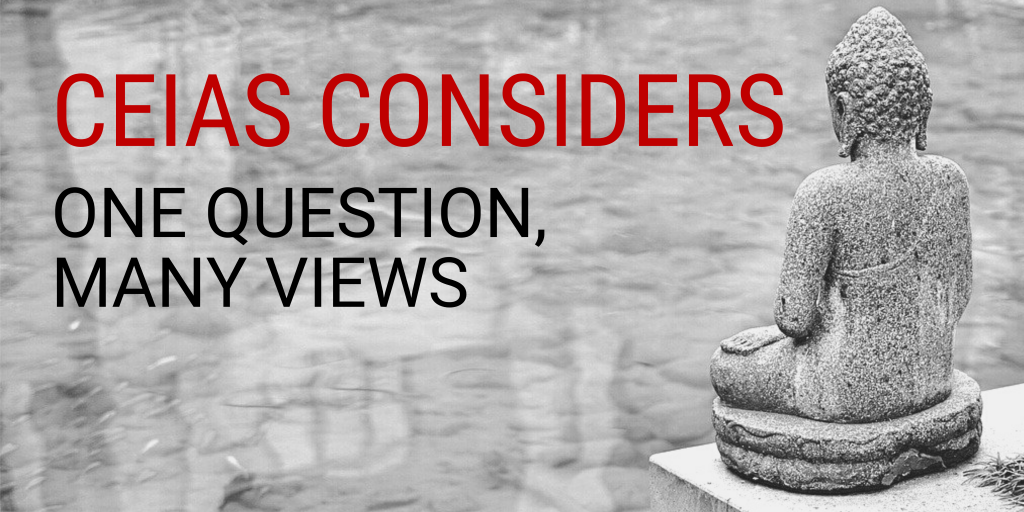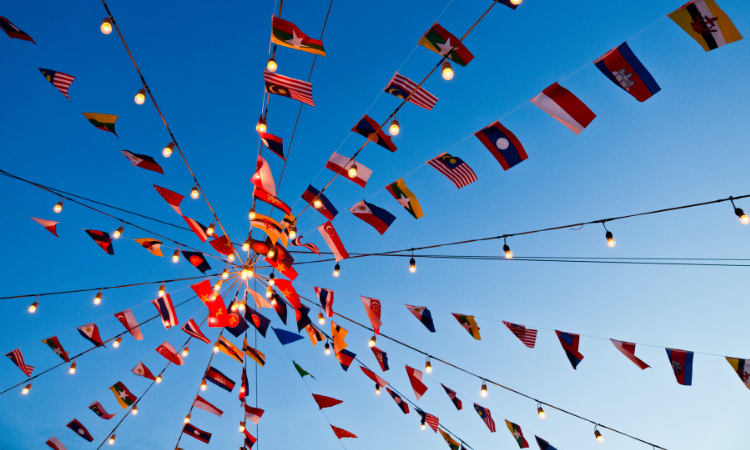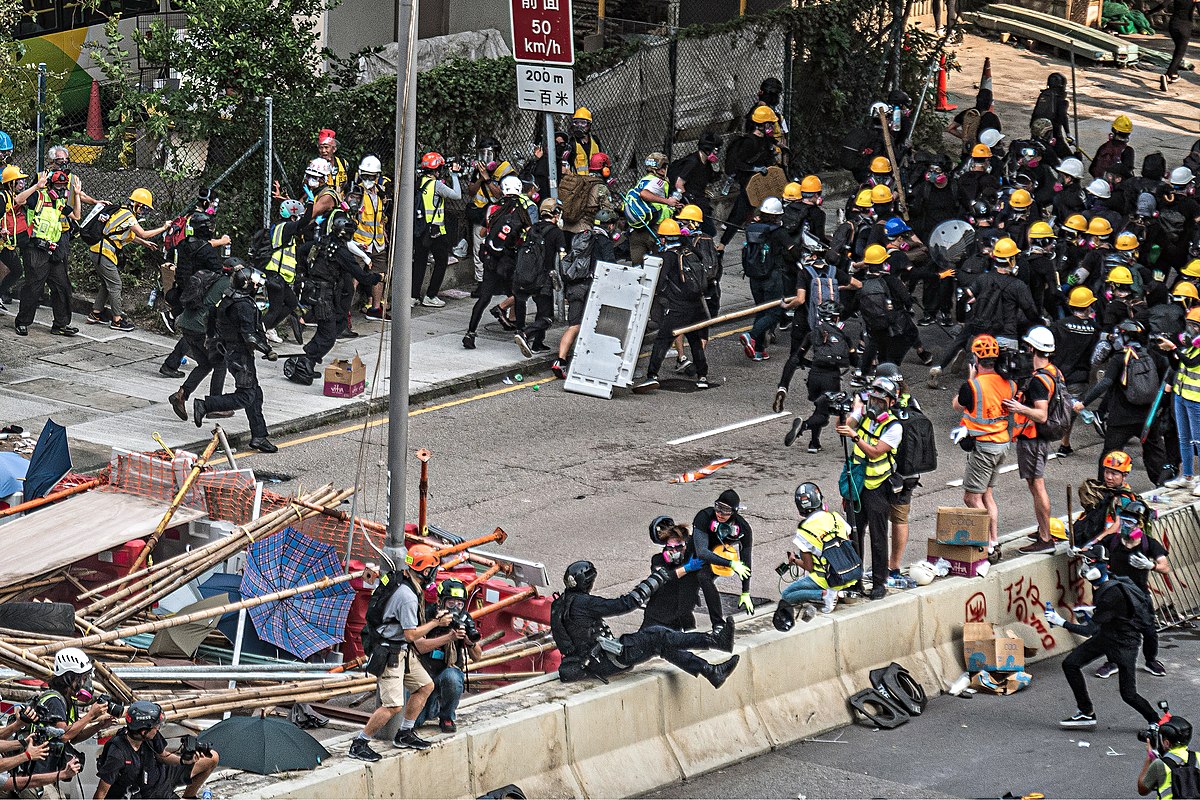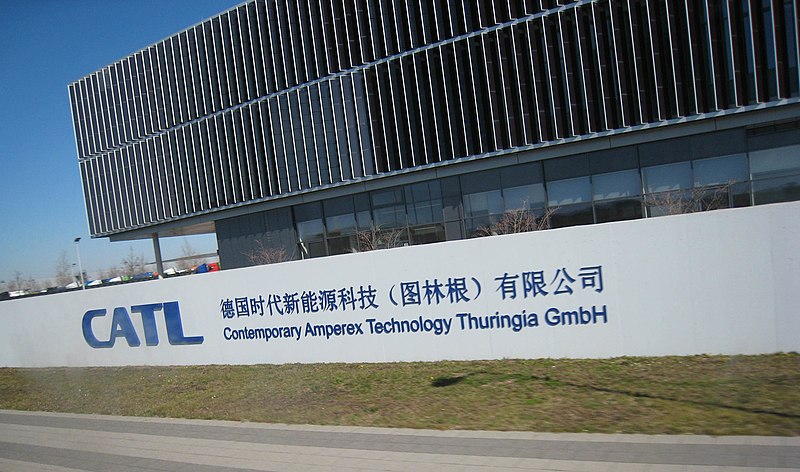
What does the Indo-Pacific mean for the Czech Republic, Hungary, Poland and Slovakia?
On September 16th, the European Union finally published its long-awaited Indo-Pacific Strategy paper, signaling Europe’s closer attention to this increasingly important part of the world. In past years, Germany, France, and the Netherlands published their own Indo-Pacific guidelines. But what does the Indo-Pacific mean to the V4 states?
On the one hand, they have fewer economic and strategic interests in the region than their Western European neighbors. On the other hand, it is an area of the world that no European country can afford to overlook. Not only is it home to four of the top ten biggest economies in the world (by nominal GDP), it is also the stage for today’s geopolitics contests, from the South China Sea to the Taiwan Straits. V4 interests in the region are piqued. In early September, the Czech Republic appointed a new special envoy to the Indo-Pacific, the post going to very experienced Libor Secka, a former ambassador to China and the United Kingdom. Later this month, a delegation of Taiwanese politicians and businesspeople will visit the Czech Republic and Slovakia, both of which have fostered better cooperation with Taipei of late and both have donated COVID-19 vaccines to Taiwan.
For CEIAS Considers, I spoke to experts from the CEE region to get their thoughts on what the Indo-Pacific means to the V4 states, from geostrategic concerns to the ongoing crisis in Myanmar.
 Matej Šimalčík
Matej Šimalčík
Executive Director of CEIAS
Over the past decade, geopolitical and geo-economic centers of gravity have been gradually shifting eastwards, away from the Transatlantic area towards the Indo-Pacific. The events of the past year and a half have demonstrated rather well what this process entails. Not only is the US increasingly active in the Indo-Pacific and paying less attention to what is happening in the EU’s neighborhood, but we have also seen the full extent of Europe’s dependence on East Asian markets and Indo-Pacific sea lines of communication.
Even in countries like Slovakia, which have never paid that much attention to East Asia, any serious conversation about foreign policy hardly goes by without at least a fleeting reference to China and the broader Indo-Pacific region. These conversations are largely overdue, as Central Europe has already benefited greatly from economic interactions with the region, with South Korea, Japan, and Taiwan being important sources of FDI for the Central European economies.
However, it is not enough for the Central Europeans to pay attention only to the particulars of the bilateral exchange. In an interdependent world, Central Europe needs to be part of the broader discussions about security in the Indo-Pacific. While largely undervalued, if conflicts in flashpoints like Taiwan Straits or the South China Sea were to erupt, Central Europe would not remain unaffected. As a 2016 study by CSIS reveals, Central and Eastern European countries transport as much as 5 to 10 percent of their overall trade via the South China Sea. A conflict disrupting the world’s busiest trade route would have a large-scale impact even on most areas of the world, Central and Eastern Europe included.
The region has already felt the potential of this impact over disrupted semiconductor imports due to COVID-19. Regional economies dependent on the car industry (Slovakia, Czechia, etc.) have seen repeated operation interruptions as their just-in-time production models were incapable to deal with the lack of semiconductors. Certain auto-makers had even announced mass lay-offs as a result.
Nevertheless, when it comes to East Asia, most CEE countries are faced with significant obstacles such as power asymmetry, scarcity of resources, and lack of qualified personnel. Neither of these obstacles has a short-term solution. Thus, if the CEE countries wish to be successful actors in the Indo-Pacific region, they are destined for mutual cooperation. In this regard, the EU provides them with a natural step-ladder to overcome some of these hurdles, especially the hurdle of power asymmetry. Due to this, CEE countries will need to realize that a key to successful engagement with the Indo-Pacific lies not only in their own capital and capitals of their East Asian partners but equally so in Brussels. To deal with the scarcity of material and human resources, other modes of cooperation may be also useful. The V4 countries have already rather successfully utilized the V4+ format to foster ties with Japan and South Korea. The platform may prove useful in fostering people-to-people relations, promoting cultural diplomacy, and pooling development aid resources. Here, cooperation seems the most viable as, unlike in economic diplomacy, zero-sum games hardly occur.
Krzysztof Iwanek
Head of the Asia Research Centre at the War Studies University, Poland
Recent years saw the rise of references to the Indo-Pacific – both the region and the concept – across the globe, including in Europe. There is no doubt that in the latter sense, Indo-Pacific is mainly a shorthand for the concept of ‘Free and Open Indo-Pacific’, and that this idea, in turn, is mainly a call to work out an approach to China’s rise. Thus, a country which uses the term ‘Indo-Pacific’ in its official documents may be understood as both planning to engage in the region more actively as well as sending a political signal – both to Washington and to Beijing.
Some of the Western European states have published their strategies towards the Indo-Pacific. France did it in 2018, Germany and the Netherlands in 2020. In turn, the United Kingdom’s recently published document, ‘Global Britain in a Competitive Age’ (March 2021) is a document of wider scope but it refers to the Indo-Pacific, and to China, many times. The EU has published a shorter document in April 2021, and a longer one just recently.
To my knowledge, no V4 country has published such a strategy but indirectly, these developments may affect those states – and in a few different ways. Firstly, V4 countries have no military capacity, and – unlike France – no permanent military presence in the Indo-Pacific which would allow them to engage in that region. Moreover, they need to remain focused on the threats emanating from their East. Yet, in case of more grave troubles in areas such as the South China Sea, potential disruptions of trade will be felt by even smaller European economies. When it comes to the security aspect, countries like Poland rely on the US and NATO allies to deter the Russian threat. They will thus hope that the American focus on the Pacific will not lead to a reduction of US military presence on NATO’s eastern flank. V4 states must therefore monitor these processes closely and ponder on their capabilities to deal with their indirect negative effects.
Secondly, the EU’s main players, Germany and France, have a large say in shaping the Union’s approach to China. Their Indo-Pacific strategy declarations confirm this at all, and the German strategy was open in stating that Berlin wants to play a large role in forming the European Union’s strategy. This is a clear signal for the V4 states that they need to be very active on the EU level, to make sure their hopes and apprehensions about relations with China are heard.
While it has been claimed by some that the Eastern and Central Europe may be used by the PRC as a wedge against EU’s unity or may even become China’s ‘Trojan’ horse, the prediction turned out to be much exaggerated, and in the case of many countries – completely wrong. Alicja Bachulska was one of the commentators to counter these “Trojan horse” claims and even pointed out that parts of Central and Eastern Europe are where Sino-skepticism is growing (which does not mean it is not growing in Western Europe). Recent events proved Bachulska right: it was Lithuania that caused a diplomatic storm in the PRC by allowing for Taiwan’s office in its territory to be renamed, it was Poland that earlier arrested a Huawei employee and charged the person with espionage.
Thus, while V4 countries also want to remain in sound economic relations with China, some of them are also growingly concerned with (1) the lack of level-playing field in these relations; (2) how politics may affect the economy (as in the case of Lithuania) and (3) how certain aspects of these ties with the PRC may have a bearing on security as well (as it may happen in the sector of telecommunication). One must hope that these apprehensions are well heard on the EU level and that a consensus on at least some of these issues is built. An incoherent development such as the recent pushing through of CAI (an agreement on which same actors, such a Germany, insisted on economic grounds) and its later freezing (for political reasons), should best be avoided in the future.
EU documents on the Indo-Pacific are usually general and sometimes wavering in their tone (the branding of China as a ‘systemic rival’ in them appears and disappears). Yet, the newest one talks of ‘pushing back where fundamental disagreement exists with China’ which suggests that a somewhat more bold EU approach towards Beijing may be in the works. Most V4 countries would probably support an EU policy that would not seek to directly downgrade economic relations with China but would still attempt to protect European markets from unfair competition and cyber espionage more effectively.
Thirdly, and finally, European states’ Indo-Pacific documents point out to certain concrete solutions these countries want to apply in their policies towards the region, and may be regarded as declarative maps of priorities (for instance, by pointing to Asian states where a particular country wants to strengthen its diplomatic presence). V4 may consider some of these solutions while planning about their own future engagement, even though their capacities are more limited.
Michal Kolmaš
Associate Professor and Chair of Department of Asian Studies at the Metropolitan University Prague, and Visiting Fellow at the University of Massachusetts-Boston
There is no common strategy for V4 in the Indo-Pacific. Indeed, there are some things these countries have in common. Most notably: attempts not to antagonize China; to promote economically viable cooperation with Japan and South Korea; to build a framework for cooperation with India. But they differ vastly in the level of engagement in each of these categories. Hungary is the most explicit friend of Beijing and sometimes seems to prefer it to Brussels. The others, despite calling for amicable relations with China (and often criticizing the EU), in reality, follow a more pragmatic and reserved way. All of the group aims to have good political and economical relations with South Korea and Japan, which was visible by their push for the joint Japan-V4 platform over the last few years. But this has yielded only limited outcomes. Politically, Japan and South Korea prefer dealing with the EU to its sub-blocs, and economically the V4 countries often find themselves competing, rather than cooperating, for investments. Lastly, the V4 seems to be coming closer to India. Since the 2019 visit of Indian foreign minister S Jaishankar in Budapest, the leaders have discussed promoting political and economical cooperation, which could play a geopolitical counter to the 17+1 pact with China. But similarly to other democratic Asian nations, even India sees cooperation with V4 in terms of their engagement within the EU. If the V4 continues to swim against the current of European integration, these initiatives are likely to wither away.
Kristina Kironska
Advocacy Director at CEIAS, and Senior Researcher at Palacký University Olomouc
While Czechia has taken a few steps towards the alleviation/solution of the Myanmar crisis, Slovakia is showing complete inaction.
After the split of Czechoslovakia, the embassy in Yangon was closed, and only one of the successor countries re-opened one, the Czech Republic in 2014. Even before that Czechia was active in communication with the pro-democracy movement, with President Havel supporting imprisoned Suu Kyi.
After the coup, Czechia was quick to condemn the military’s actions, the ambassador in Yangon has signed several joint statements with other ambassadors calling on the junta to stop atrocities, and the Czech government has even sent a letter congratulating the NUG liaison officer for Czechia on his appointment and welcoming the formation of the NUG – a move that would appear to suggest Czechia has decided to recognize the NUG as the legitimate authority in Myanmar, although this has not been explicitly stated by Prague.
On the other hand, Slovakia has not issued any official statements following the coup (and the President has only briefly mentioned the Myanmar crisis in one of her speeches several months into the conflict). It is true, that Czechia has a small community of Myanmar people and a few support-organizations that engage in advocacy work (such as the Burma Center Prague or Transparency International CR), while Slovakia has none. We, at CEIAS, engage in some advocacy activities (in cooperation with the above-mentioned Czech NGOs), but the response from the Slovak authorities, including the Slovak MEPs, has been lamentable. There have been protests both in Prague (several times), and one also in Bratislava (with me involved in the organization of it) with a modest but not negligible attendance. This suggests that the civil society in Slovakia is not as apathetic to the events in Myanmar as the government.
I would even go as far as arguing that if Slovakia recognized the NUG, it would not lose anything since Slovakia has few interests in this Asian country (inaction with Taiwan in the past has been defended by the argument that Slovakia can’t afford to anger China because it would lose economic opportunities) and could trigger a domino effect, with other countries following suit.
Image source: U.S. Mission to ASEAN










